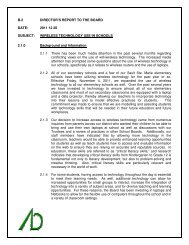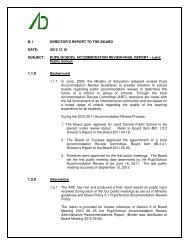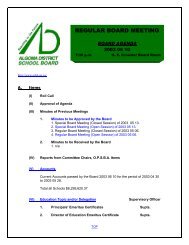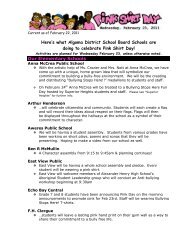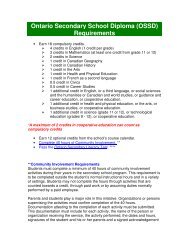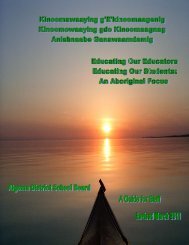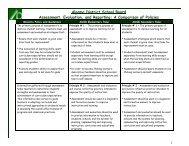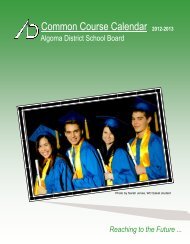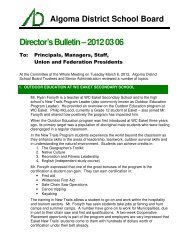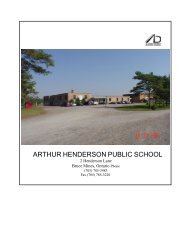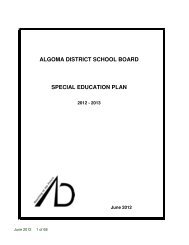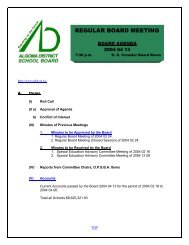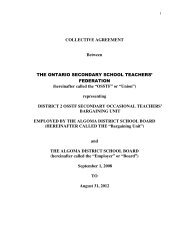Educating Our Educators (March 2011) - Algoma District School Board
Educating Our Educators (March 2011) - Algoma District School Board
Educating Our Educators (March 2011) - Algoma District School Board
- No tags were found...
Create successful ePaper yourself
Turn your PDF publications into a flip-book with our unique Google optimized e-Paper software.
<strong>Our</strong> experiences, our values and our cultural background lead us to see and do things in acertain way. Sometimes we have to step outside of our cultural boundaries in order torealize the impact that our culture has on our behaviour. It is very helpful to gather feedbackfrom foreign colleagues on our behaviour to get more clarity on our cultural traits.Projected similarities could lead to misinterpretation as well. When we assume that peopleare similar to us, most often they are not. If we project similarities where there aren’t any,we might act inappropriately. It is safer to assume differences until similarity is proven.The following is presented to assist to understand the Aboriginal Culture.Admit that you don’t know. Knowing that we don’t know everything, that a situation doesnot make sense, that our assumptions may be wrong is part of the process of becomingculturally aware. Assume differences, not similarities.Suspend judgments. Collect as much information as possible so you can describe thesituation accurately before evaluating it.Empathy. In order to understand another person, we need to try standing in his/her shoes.Through empathy we learn of how other people would like to be treated by us.Systematically check your assumptions. Ask your colleagues for feedback and constantlycheck your assumptions to make sure that you clearly understand the situation.Become comfortable with ambiguity. The more complicated and uncertain life is, the morewe tend to seek control. Assume that other people are as resourceful as we are and thattheir way will add to what we know. “If we always do, what we’ve always done, we willalways get what we always got.”Some things to Think about and Consider• Use the word Anishinaabe when referring to First Nation people• Photos, videos and/or sound recordings of ceremonies should only be taken oncepermission has been granted from the person or group you are recording. There aresome areas of Turtle Island that recordings of ceremonies are not allowed at all.• Use the word 'Nation' instead of 'tribe'• Refer to Indian traditional clothing as regalia, not a 'costume'• Special objects have special meanings and may be sacred – ask before touching(e.g. A rattle)• Regalia, artifacts and personal belongings with special significance please askbefore handling them• Anishinaabe have great respect for Elders.Some things to avoid<strong>Educating</strong> <strong>Our</strong> <strong>Educators</strong> – <strong>Educating</strong> <strong>Our</strong> Aboriginal Students for Success 93



